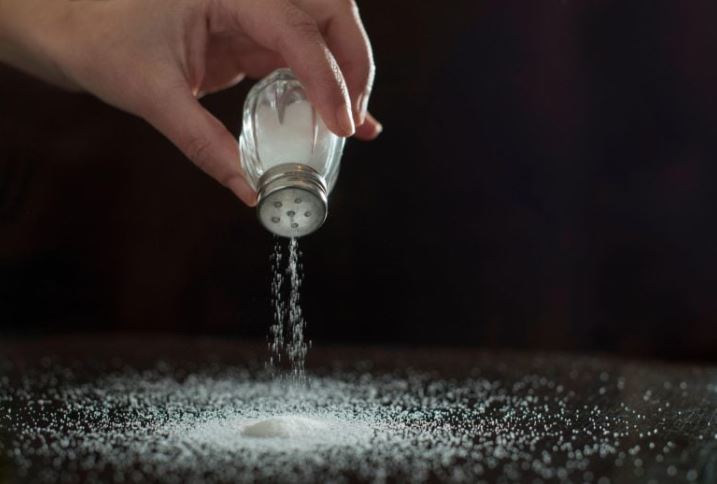


 12:52:14
12:52:14  2025-09-15
2025-09-15  1320
1320

A major new study shows that fewer than 6% of U.S. adults use salt substitutes, even though they can help reduce blood pressure and heart risk.
Preliminary findings presented at the American Heart Association’s Hypertension Scientific Sessions 2025 show that only a small share of people with high blood pressure use salt substitutes, even though these products offer a simple, effective way to reduce sodium intake and help manage blood pressure.
High blood pressure develops when the force of blood pushing against artery walls remains consistently elevated. Over time, this condition significantly raises the risk of life-threatening complications such as heart attacks and strokes. Data collected between 2017 and 2020 show that 122.4 million adults in the U.S. (46.7%) were living with high blood pressure, which was associated with more than 130,000 deaths during that period. Excess sodium and inadequate potassium intake are among the key dietary contributors to this widespread health issue.
“Overall, less than 6% of all U.S. adults use salt substitutes, even though they are inexpensive and can be an effective strategy to help people control blood pressure, especially people with difficult-to-treat high blood pressure,” said lead study author Yinying Wei, M.C.N., R.D.N., L.D., and Ph.D. candidate in the departments of applied clinical research and hypertension section, cardiology division, at UT Southwestern Medical Center in Dallas. “Health care professionals can raise awareness about the safe use of salt substitutes by having conversations with their patients who have persistent or hard-to-manage high blood pressure.”
Salt Substitutes: An Underused Solution
Salt substitutes are products in which some or all of the sodium is replaced with potassium. Potassium salt tastes much like regular table salt, although heating can produce a bitter aftertaste. Sodium occurs naturally in many foods, but most intake comes from processed and packaged items and from meals prepared in restaurants. The
American Heart Association advises limiting sodium to no more than 2,300 mg per day, with an ideal goal of less than 1,500 mg for most adults, especially those with high blood pressure. For most people, reducing daily sodium by about 1,000 mg can improve blood pressure and support heart health.
This study is the first to examine long-term trends in salt substitute use among a nationally representative sample of U.S. adults. Using data from the National Health and Nutrition Examination Survey (NHANES) from 2003 to 2020, researchers analyzed the use of products that replace salt with potassium-enriched or other alternative salts.
The investigation focused on people with high blood pressure, and an additional analysis was conducted among adults eligible to use salt substitutes, including people with normal kidney function and those not taking medications or supplements that affect blood potassium levels. Some salt substitutes contain potassium, and they can raise blood potassium to dangerous levels in people with kidney disease or those taking certain medications or potassium supplements. Excessive potassium can lead to irregular heart rhythms. People with high blood pressure who are thinking about switching from regular salt to a salt substitute should first consult with a health care professional.
Study Findings on Salt Substitute Use
The analysis found:
“Salt substitute use remained uncommon over the last two decades including among people with high blood pressure,” Wei said. “Even among individuals with treated and poorly managed or untreated high blood pressure, most continued to use regular salt.”
“This study highlights an important and easy missed opportunity to improve blood pressure in the U.S.—the use of salt substitutes,” said Amit Khera, M.D., M.Sc., FAHA, an American Heart Association volunteer expert. “The fact that use of salt substitutes remains so low and has not improved in two decades is eye-opening and reminds patients and health care professionals to discuss the use of these substitutes, particularly in visits focused on high blood pressure.” Khera, who was not involved in this study, is a professor of medicine, clinical chief of cardiology and director of preventive cardiology at UT Southwestern Medical Center in Dallas.
The study has several limitations. First, information about salt substitute use was self-reported, so there may have been underreporting or misclassification. In addition, all types of salt substitutes were included in the analysis, therefore, the analysis could not specifically separate potassium-enriched salt from other types of salt substitutes. Finally, the survey data did not capture how much salt substitute the participants used.
“Future research should explore why salt substitute-use remains low by investigating potential barriers, such as taste acceptance, cost, and limited awareness among both patients and clinicians,” said Wei. “These insights may help guide more targeted interventions.”
Study details, background, and design
Reality Of Islam |
|

Researchers

A well-know

Scientists

As AI-power
 9:3:43
9:3:43
 2018-11-05
2018-11-05
10 benefits of Marriage in Islam
 7:5:22
7:5:22
 2019-04-08
2019-04-08
benefits of reciting surat yunus, hud &
 9:45:7
9:45:7
 2018-12-24
2018-12-24
advantages & disadvantages of divorce
 11:35:12
11:35:12
 2018-06-10
2018-06-10
 6:0:51
6:0:51
 2018-10-16
2018-10-16
 3:18:29
3:18:29
 2022-12-24
2022-12-24
 8:21:9
8:21:9
 2018-06-21
2018-06-21
 4:2:19
4:2:19
 2022-10-10
2022-10-10
al-hussain (peace be upon him)
 10:18:1
10:18:1
 2022-09-21
2022-09-21
 6:28:21
6:28:21
 2022-12-20
2022-12-20
 8:4:21
8:4:21
 2022-01-08
2022-01-08
 2:13:43
2:13:43
 2022-05-27
2022-05-27
 5:41:46
5:41:46
 2023-03-18
2023-03-18
| LATEST |